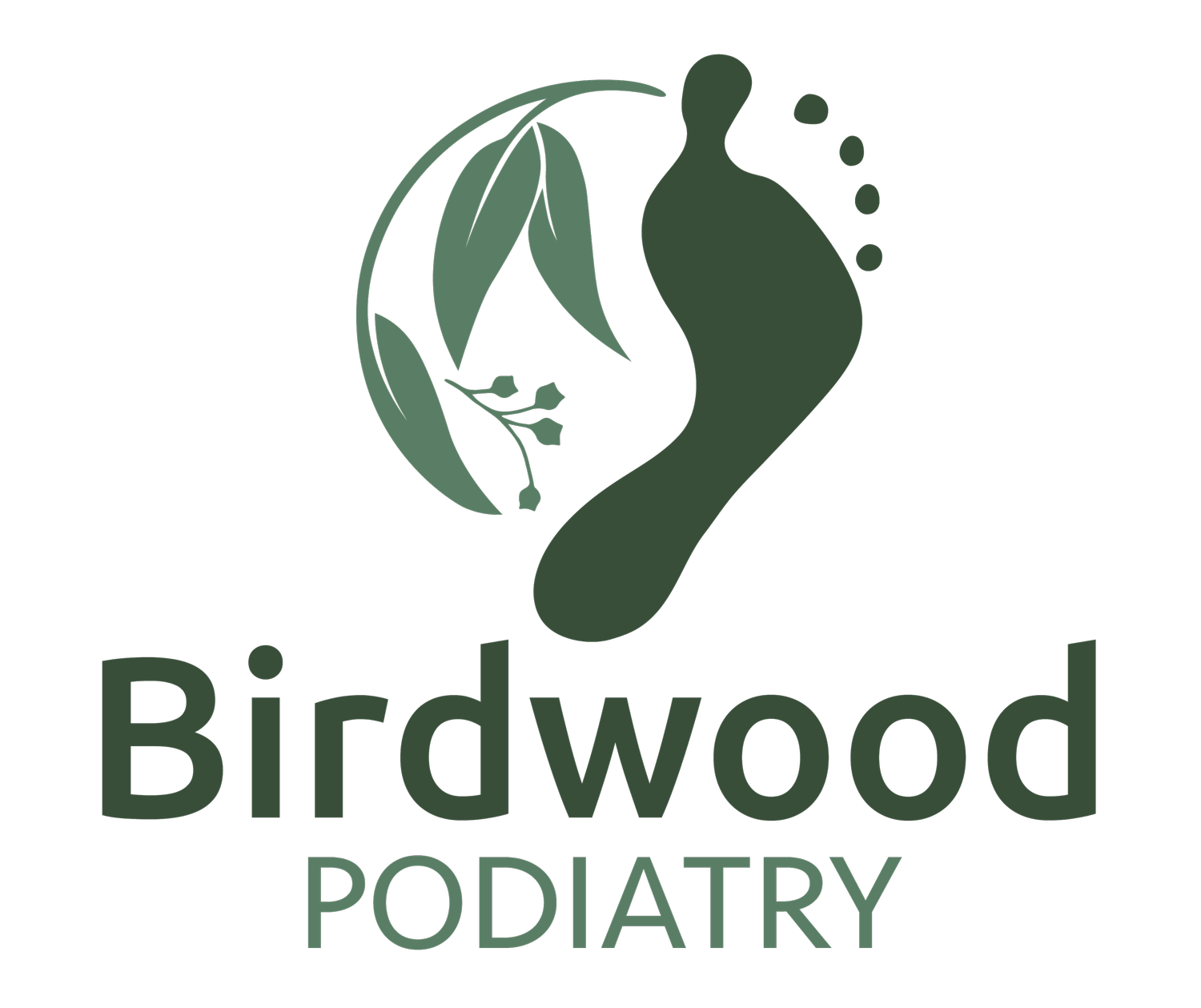Nail and Skin Conditions
At Birdwood Podiatry, we diagnose and treat various nail and skin conditions. During your consultation, our podiatrists will perform an in-depth assessment of your skin and nail health. Your medical history will also be discussed to further understand your needs to provide a tailored treatment plan.
What conditions do we treat?
At Birdwood, we diagnose and treat the following skin and nail conditions:
Thickened Toenails
Calluses
Corns
Plantar Warts
Cracked Heels
Athletes Foot
For Fungal Nail Conditions, you can learn more here
Thickened Toenails
Our podiatrists can reduce thickened toenails as part of a general foot care treatment which involves cutting the nails with a special file or burr. In extreme cases, our podiatrists can remove the thickened nail permanently with nail surgery.
Calluses
Calluses (Hyperkeratosis) are a build-up of thick skin on the foot caused by friction in high pressure areas. They are often accompanied by corns and can vary in pain intensity. If left untreated, they can interrupt the vascular blood supply to the area and an ulceration may occur. People with diabetes should be screened and treated to prevent the development of a callus that can cause ulcerations.
Corns
Corns (Heloma Dura and Heloma Molle) are painful lesions/spots of thickened skin on the foot caused by friction in high pressure areas of the foot. Hard corns appear on the top and sides of toes and also along the bottom of the foot, while soft corns usually appear between the fourth and fifth toes. If left untreated, they can become very painful and may interrupt the blood supply to the area and cause an ulcer. People with diabetes should be screened and treated accordingly to prevent the development of corns that can cause ulcerations.
Plantar Warts
Warts are a growth on the skin caused by a viral infection from the Human Papilloma Virus (HPV). There are over 100 different strains of HPV, but only a few cause warts on feet. A wart that you find on the sole of your foot is called a verruca wart or plantar wart, and can be found anywhere on the feet. Plantar warts are not usually a serious concern, but if they cause pain and discomfort, seek advice from a podiatrist.
Cracked Heels
When the skin around the heel becomes dry, it loses suppleness and elasticity, leading to cracks in the heel. This condition is commonly associated with heel calluses, which can be painful and may bleed and become infected.
Athlete’s foot
Athlete's Foot (Tinea Pedis) is a common fungal infection of the skin caused by the tinea pedis microbe. The signs of Athlete’s foot include itchiness, redness, and peeling skin between the toes. It is important to see a podiatrist if you develop tinea and seek treatment for Athlete's Foot. Most fungal infections can be treated with topical antifungal agents, but some can be stubborn and difficult to get rid of. Sometimes prescription medication is required to treat Athlete’s Foot, and your podiatrist can advise you to get a prescription.
How do I book an appointment?
Birdwood Podiatry provides treatment for a wide range of nail and skin complications right here at our clinic in Springwood.
If you’d like to book an appointment or have any questions about this treatment please get in touch with us.
Give us a call at (02) 4707 6558, email phil@birdwoodpodiatry.com.au or to book an appointment click here.
Blue mountains podiatrist, Sore heels, corn, back, cycling, blue mountains podiatrists, fungal nail, shockwave, Podiatrist Phillip Smith, hip, spur, running, caidens, flat, legs, callous, legs inserts, pain feet, tinea, high Medicare, Blue Mountains Podiatry, orthotics diabetes, plantar fasciitis, pain feet orthotics, athletes foot, health shoes, severs knee, knee, gait, blue mountains podiatrists, wart, arch, shin splints, diabetes, Children's podiatrist, Lithgow, Blackheath, Katoomba, Leura, Wentworth Falls, Lawson, Hazelbrook, Faulconbridge, Springwood, Blaxland, Glenbrook, Emu Plains, Penrith
